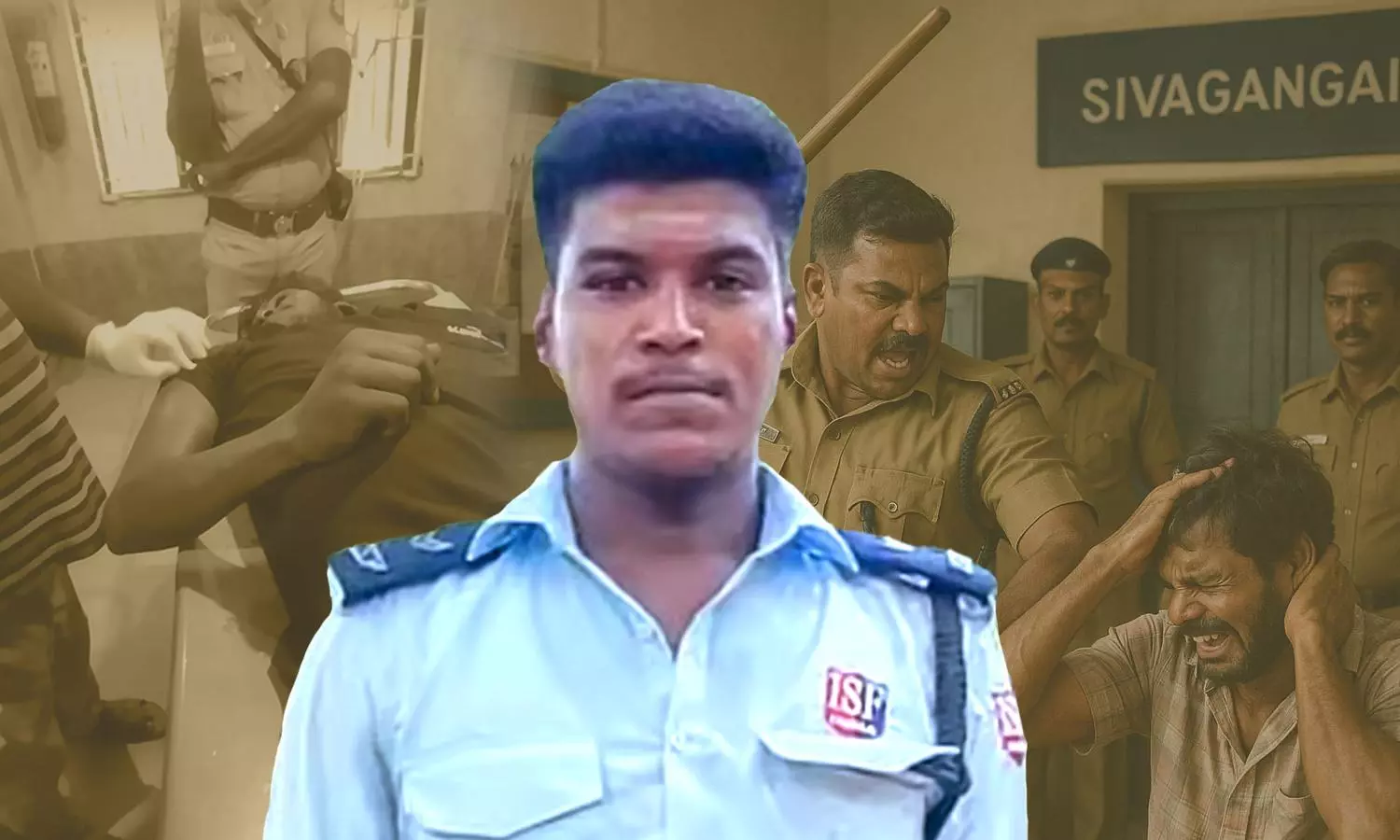
Sivaganga and more: Why do erring cops escape penalty for brutality?
Despite alarming figures, systemic reforms and accountability for police excesses remain elusive in Tamil Nadu, as well as in India

Custodial deaths, commonly known as “lock-up deaths”, continue to plague Tamil Nadu, exposing deep-rooted flaws in the state’s law enforcement system.
These deaths, the latest being that of 27-year-old temple security guard Ajith Kumar, are often linked to alleged misuse of authority, physical or psychological abuse, or personal vendettas by police personnel.
Such acts are a clear violation of Article 21 of the Indian Constitution, which guarantees the right to life and fundamental freedoms, making custodial deaths a punishable offence.
Also read: TN custodial death: HC orders judicial probe, says ‘a state has killed its own citizen’
Tamil Nadu’s dubious record
According to Lok Sabha data, Tamil Nadu recorded 478 custodial deaths between 2016-17 and February 28, 2022, the highest in South India, followed by Andhra Pradesh (244), Kerala (235), Telangana (128), and Karnataka (58). This alarming figure underscores the urgent need for systemic reform in Tamil Nadu’s policing practices.
Nationwide, between 2017 and 2021, 286 judicial inquiries were ordered into custodial deaths, with 114 police personnel arrested. However, only 79 faced charges, and none were convicted, as per the National Crime Records Bureau.
Also read: Sivaganga custodial death: Madurai bench slams TN police, asks 'why no FIR registered?'
Sathankulam case remains unresolved
In Tamil Nadu, 39 judicial inquiries were conducted during this period, but most cases saw no charges filed or convictions secured, raising serious questions about accountability.
The 2020 Sathankulam custodial deaths of Jeyaraj and Bennix, where nine officers were charged, remain unresolved after four years, highlighting the slow pace of justice.
Similarly, only 25 human rights violation cases involving unlawful arrests, torture, or injuries were registered against police personnel in India during this period, with just 16 officers charged, 15 arrested, and only three convicted.
Also read: Sivaganga custodial death | HC slams govt: ‘Was the deceased a terrorist?’
A landmark ruling
In a recent landmark ruling, a Thoothukudi court sentenced nine individuals, including the current Srivaikuntam Deputy Superintendent of Police, to life imprisonment for a 1999 custodial death. The victim, C Vincent, a salt-pan worker, died suspiciously in Thalamuthu Nagar police station’s lock-up a day after being detained on September 17, 1999.
This conviction, the first in Tamil Nadu in 26 years, signals a potential step towards accountability. Article 22 of the Constitution protects citizens from unlawful detention, placing the responsibility for detainees’ safety on the judiciary. However, senior advocate Shankar noted, “In practice, this protection rarely reaches the people.”
Also read: Sivaganga custodial death: TN govt hands over case to CBI
NHRC’s limited powers
The National Human Rights Commission (NHRC) has raised compensation for custodial deaths, encounters, sexual harassment, and physical injuries from Rs 5 lakh to Rs 7.5 lakh, and for confirmed police brutality cases, from Rs 1 lakh to Rs 3 lakh, as announced by the Tamil Nadu government.
Human rights activist Evidence Kathir pointed out the NHRC’s limited powers, as it can only issue recommendations to state governments, which are often ignored. This lack of enforceable authority allows serious offenses like custodial deaths to go unpunished. The judicial system’s mechanical approach and prolonged delays in investigations further deny justice to victims.
Need for systemic change
Senior advocate Elangovan stressed the need for systemic overhaul: “Custodial deaths reflect a failure of the judiciary. Courts must ensure police do not abuse their authority, guarantee medical services in lock-ups, and strengthen mechanisms for reporting abuses. Investigations must conclude within set timelines, and the state must take full responsibility for detainees’ safety.”
Also read: TN custodial death: Murder charges included, five policemen arrested
He added, “Under the law, anyone detained or arrested has the right to legal representation, and self-incrimination is unconstitutional. Yet, Tamil Nadu has not reformed, and third-degree treatment by police persists. Detainees rarely engage lawyers, and how many judges question police when detainees report injuries like broken hands?”
Government will lacking?
The Tamil Nadu government’s assurances of providing jobs and financial assistance to address custodial deaths and police brutality are inadequate without systematic administrative reforms, says Elangovan.
“In the Ajith Kumar case, the police FIR claimed he died of a seizure, but the postmortem revealed death due to torture. Action was taken against the police, but the government failed to properly explain this in court. Only when such cases are handled without political interference will the system change,” he asserted.

